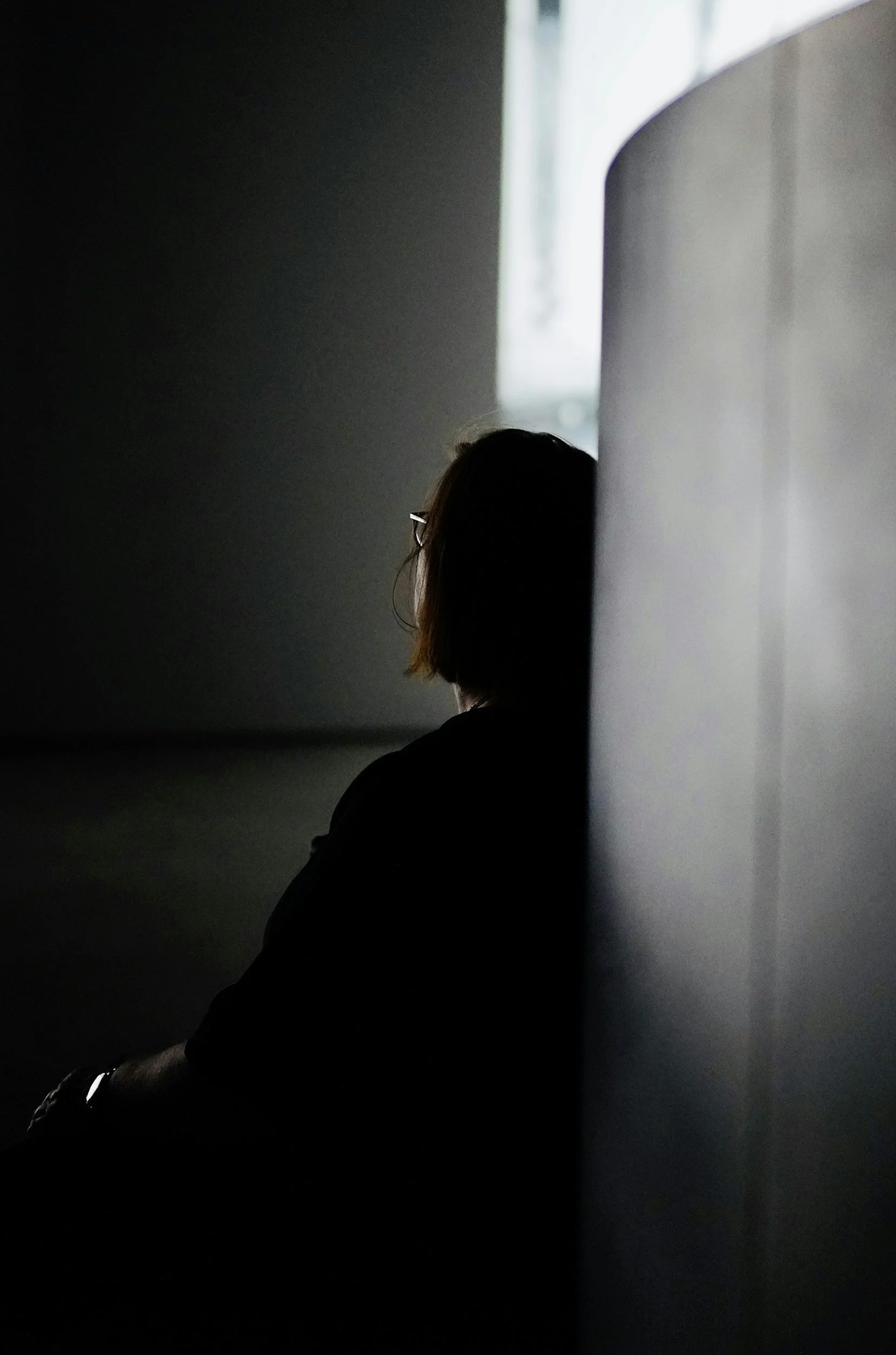
Trauma
Life feels like a constant battle
And Holding It Together Feels Like Falling Apart
You wake up already tired. Your mind is racing before your feet even hit the floor. You replay conversations from yesterday (or was it last week?), second-guessing everything. You’re holding it together on the outside, but on the inside, it feels like a pressure cooker.
Maybe you feel like no matter how hard you try, you can’t shake this sense of heaviness. Some days it’s a low hum, other days it’s a full-on storm. You’ve gotten good at hiding it, pushing it down, putting on a brave face—but underneath, something just feels off.
You can’t always point to one big event, but you’ve been through enough to know that your past is still tagging along for the ride. You might not call it “trauma,” but the way you feel right now is definitely not how you want to keep living.

You get stuck
Stuck in feelings of guilt and shame. Stuck in the same frustrating patterns—whether it’s in your relationships, your job, or just in your head. The same story keeps replaying, no matter how much you want to turn the page.
You’ve tried therapy before. You’ve found some relief, but it always felt like it stopped just short of the real issue. You’re tired of feeling like you’re stuck on a loop.
Trauma Healing
It’s a process. There’s no quick fix, no “just get over it” moment—it’s more like taking steps down a path toward feeling whole again. The journey can be messy, but it's also full of growth and discovery, and you don’t have to do it alone.That’s where therapy comes in—not just to reprocess old wounds but to help you build a toolkit that you can use every day.
You might’ve heard of things like EMDR (a technique for processing trauma), but here’s the deal: not every tool works for every person. That’s why I use a variety of approaches—whether it's teaching you mindfulness techniques, building emotional regulation skills, or just helping you find moments of calm when life feels overwhelming.
EMDR is great for some, but it's just one of the many ways we can tackle your healing. We’ll figure out together what works best for you.
What is Emdr?
I’ve heard of EMDR. What is it? EMDR is just one technique used for healing trauma. Think of your brain like a giant filing cabinet. Normally, when things happen, your brain sorts those memories into neat little files, and you can pull them out when needed. But when something really stressful or traumatic happens, your brain can misfile it—like shoving a paper into the wrong folder. That’s why it feels like these memories keep jumping out at you at the worst times.
EMDR helps your brain reorganize those memories and put them where they belong. We use things like eye movements or “tappers” to get both sides of your brain working together. It’s kind of like hitting the refresh button, so your brain can file those old memories properly, and they stop getting in the way of your life today.

Building a Foundation first
Before we jump into any specific trauma work, we’ll start by laying the groundwork. Think self-regulation, learning how to calm your mind and body when things get tough, and setting boundaries that actually stick. It’s about making sure you feel safe and in control, whether you're in a therapy session or dealing with everyday life. Then, once you're ready, we can start diving deeper into the processing part, using whichever tools make sense for your unique journey.
-
Before we even get into the hard stuff, we focus on building up your self-regulation skills. That means learning how to calm yourself down when emotions feel out of control, or when anxiety kicks into overdrive. We’ll practice things like deep breathing, grounding exercises, and mindfulness—all the things that help you stay present and not spiral when things get tough.
These tools are like your emotional first-aid kit. They give you some control over your reactions, so the hard emotions don’t knock you off your feet every time.
-
Trauma has a sneaky way of showing up in your relationships—maybe you find yourself people-pleasing, struggling with boundaries, or feeling like you can’t fully trust others. In therapy, we take a look at these patterns and figure out where they’re coming from.
We’ll work on setting healthy boundaries, learning to communicate what you need, and building trust—whether it’s with others or yourself. Healing trauma isn’t just about you in isolation; it’s about helping you have better, more fulfilling connections with the people in your life.
-
Trauma can make your emotions feel like they’re at a 10 when you wish they were at a 2. We’ll spend time on emotional regulation, which is basically learning how to manage those intense feelings instead of letting them manage you.
You’ll learn ways to bring yourself back down when you’re overwhelmed or anxious, and how to get through tough moments without getting stuck in them. These are skills you can use in real-time—whether you’re in a stressful situation at work, having an argument, or just feeling that emotional flood come over you.
-
Trauma often leaves us with negative beliefs about ourselves: I’m not good enough, I can’t handle this, I’m broken. In therapy, we start to challenge those beliefs and replace them with something healthier and more true. It’s not about pretending everything is fine—it’s about recognizing that you’re stronger than your past and that you deserve better stories to tell yourself.
-
One of the toughest parts of healing trauma is learning to sit with uncomfortable feelings without feeling like you need to run, hide, or shut down. We’ll practice distress tolerance—which is all about surviving those tough emotions without letting them take over.
This doesn’t mean you have to like the uncomfortable feelings, but it does mean you’ll get better at knowing you can handle them when they show up. You won’t have to avoid certain situations, people, or memories because you’re afraid of how they’ll make you feel.
Finding relief, together
Here’s what I know: you don’t just want to talk about the past—you want to feel lighter, more in control, and like the things that once weighed you down don’t define you anymore. In therapy, we’ll have real conversations, laugh at life’s absurdities, and take it step by step. Together, we’ll find what works for you—whether it’s through mindfulness, learning distress tolerance, or sometimes, yes, trauma processing (in fact, sometimes reprocessing is only 3% of trauma healing.). But most importantly, you’ll feel seen and supported every step of the way.
Other Areas of Expertise









